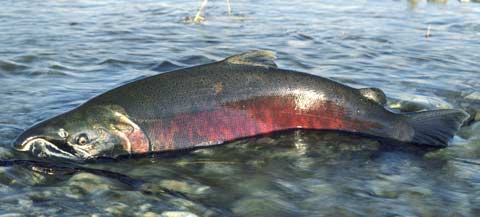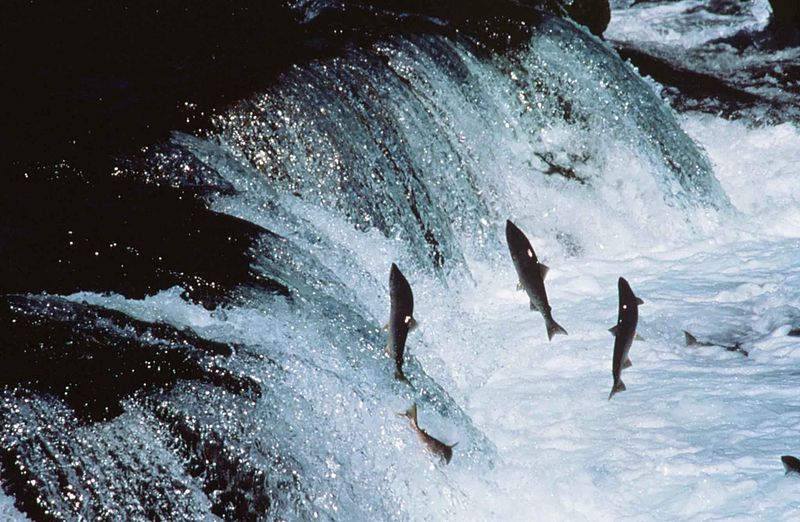INDEV Students on Salmon Confidential
By: Ainishah Hermraj, Cassidy Walker, Maria Pham, and Natalie Taylor

Alexandra Morton is an independent Canadian biologist. She was studying whales in a remote section of the B.C. coast when she first started to notice changes to the salmon population. She has now dedicated about 40 years to the restoration of the salmon population off the B.C. coast.
There were three viruses that were identified in this documentary; Piscine Reovirus (PRV), Infectious Salmon Anemia (ISA) & Salmon Alphavirus (PDF). PRV presents symptoms of Heart and Skeletal Muscle inflammation and Cardiomyopathy Syndrome. Not all fish infected with the PRV show these symptoms. ISA is a finfish disease. It is a reportable disease in Canada and can occur in Atlantic salmon and, rainbow and brown trout. There are many signs of ISA; loss of appetite, abnormal swimming, greying gills, swollen abdomen and many more. Salmon alphavirus is also similar to the other two viruses. It affects salmon and trout species. The symptoms progress over time, they start with a loss of appetite and changing swimming behaviour and progress into visible lesions and tissue abnormality. All three of these viruses are extremely deadly to fish.
One lead scientist that was doing a lot of research on these diseases, specifically PRV, was Kristi Miller. She had found PRV amongst dead fish in the Fraser River but was not allowed to publicize this information. In 2009, 10 million fish vanished from the Fraser River and the government ordered a federal inquiry called the Cohen Commission to find the reason for the fish decline. This was the first inquiry of its kind and required $26 million of funding. Kristi Miller however, was denied access to testing the farm fish. The film explores reasons for the fish decline, including seemingly generic answers such as over fishing, sharks, predatory giant squid and water temperature. The scientists however, found European strain ISA virus amongst the salmon. They sent their samples to the two most internationally recognized labs for the ISA virus. Both, Dr. Kibenge’s lab in Prince Edward Island and Dr. Nylund’s lab in Norway, tested the samples as positive for the virus. Once this was brought to the attention of the Canadian Food Inspection Agency (CFIA), they also took samples and sent them off to two other labs, where the samples were declared negative. This information was immediately publicized in the newspaper and the positive test results were not mentioned. The CFIA performed an audit of Dr. Kibenge’s lab and tried to revoke him of his license but after a Cohen Commission hearing, some members of the CFIA were revoked of their own licenses.

For those who feel passionately about the discoveries addressed in the Salmon Confidential documentary or even for those who are a little bit interested in the fish they are consuming, an easy way to “stay in the know” is to follow the film’s Facebook page. The officials running the page make sure that anyone can get involved in their battle against the fictitious claims and misinformation. By “liking,” sharing or commenting on a post one can easily be signing a petition for change. Also, according to the page, there has been progress, for example, new aquaculture licensing in B.C. has encouraged improved business planning and investments in sustainable practices. Since this movement is against government officials the voice of the citizens are called to action. This documentary does a great job of outlining the challenges international developers will continue to face in regards to the economic and sustainable growth.